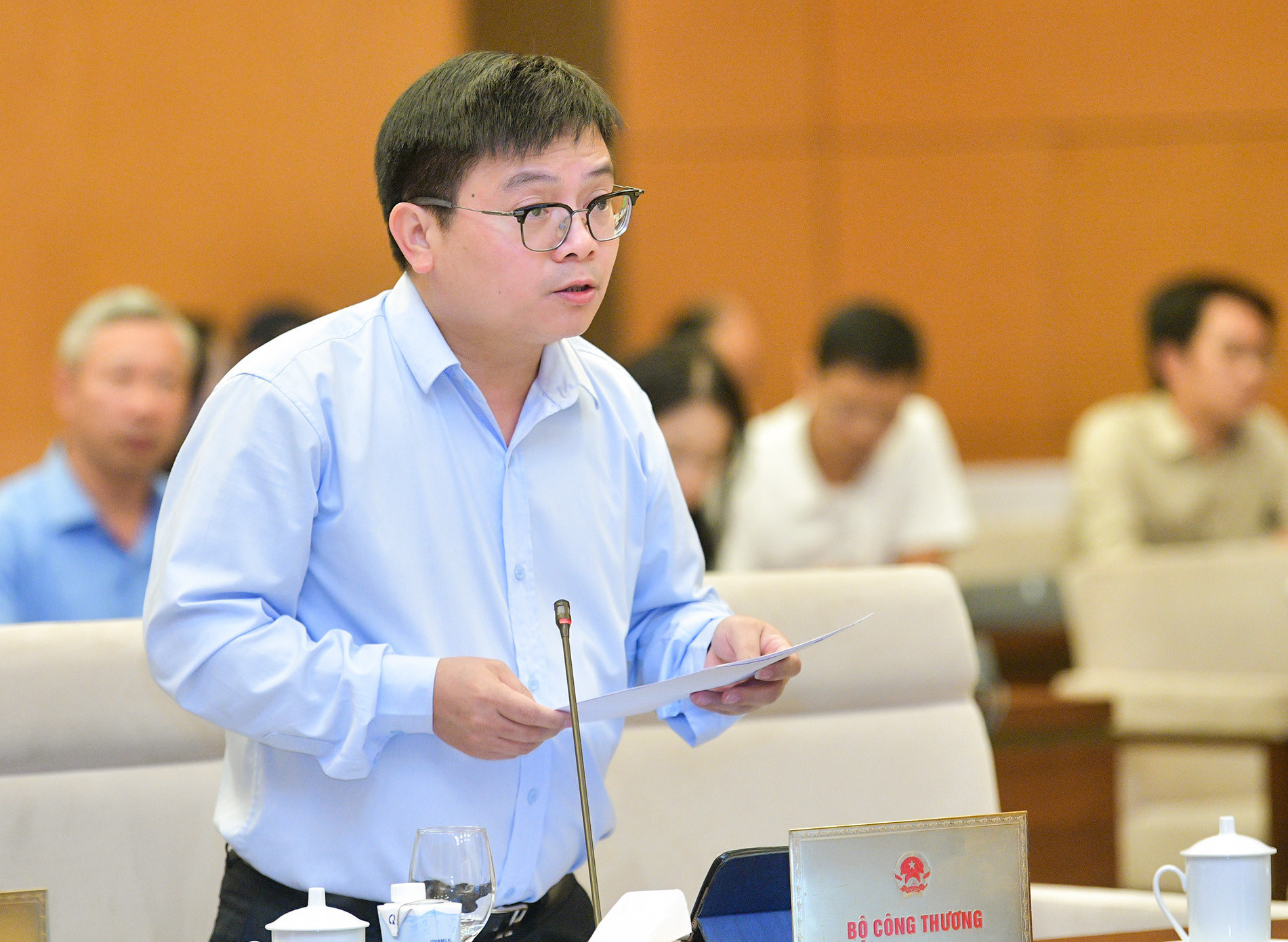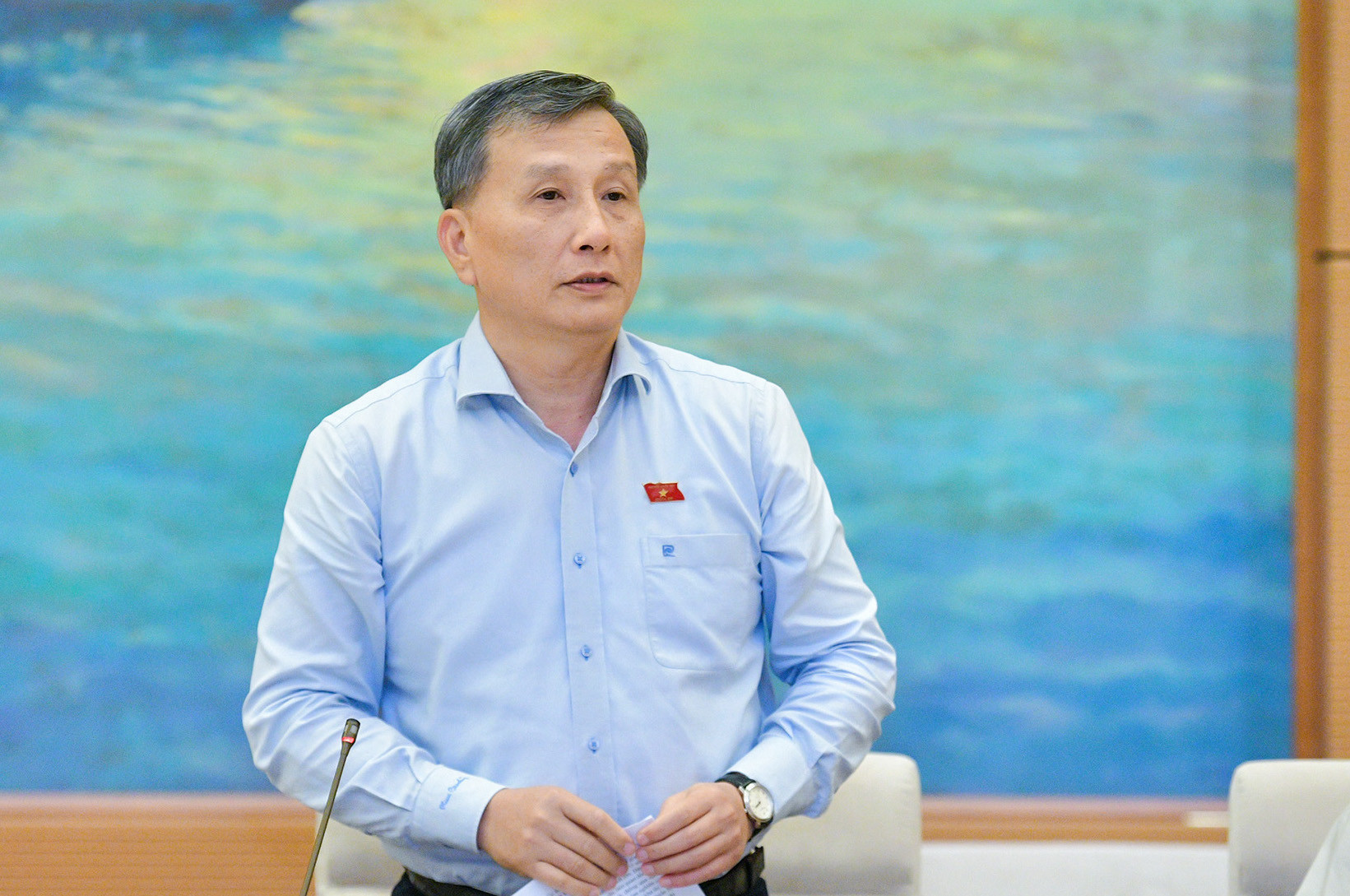On the afternoon of August 19th, the National Assembly's Standing Committee held its 36th session to discuss the draft amendment to the Electricity Law.

Nuclear power: A key strategy for energy security
One of the significant updates in this draft amendment is the inclusion of nuclear power development. According to the draft, nuclear power is recognized as a new form of energy.
Clause 5, Article 5 of the draft law clearly states that the State will hold a monopoly on the investment and construction of nuclear power plants, in addition to its monopoly on multi-purpose hydropower plants, emergency power projects, and electricity grid management.
Reviewing this content, Le Quang Huy, Chairman of the National Assembly's Committee on Science, Technology, and Environment, mentioned that some opinions suggest Vietnam has potential for nuclear power development, and initial preparations have already been made. In the global context, where investment in nuclear energy is resurging, developing this energy source has become increasingly important.
Nuclear power is considered a crucial strategy for ensuring energy security and achieving the Net Zero target by 2050, as committed by the Government.
The Standing Committee on Science, Technology, and Environment stressed the need for thorough consideration of the nuclear power regulations in the draft law. The fundamental principles governing this energy source should be aligned with the Atomic Energy Law.
Additionally, the drafting agency needs to provide political, scientific, technological, and technical justifications to support the implementation of nuclear power projects.
The Standing Committee also recommended that the drafting agency report to the relevant authorities on the regulatory framework for nuclear power development and include provisions for support, risk management, safety, and environmental protection related to the development and operation of nuclear power plants.

Regarding offshore wind power, Huy noted that this is also a very new field in Vietnam, involving national defense, security, sovereignty, and the responsibilities of various ministries and agencies.
Therefore, the Standing Committee recommended strict regulations on project transfer conditions and the responsibilities of each ministry and agency in developing this energy source.
Another significant point in the draft law concerns Resolution 55 of the Politburo, issued in 2020, which directed the cessation of cross-subsidies in electricity pricing across customer groups and regions.
The draft law also includes provisions to rationalize retail electricity pricing structures, gradually eliminating cross-subsidies between regions and customer groups that do not participate in the competitive retail electricity market. The electricity pricing mechanism will be tailored to customer groups with high electricity consumption levels.
In reviewing this content, the Committee on Science, Technology, and Environment agreed that adding regulations aimed at aligning electricity pricing policies with market dynamics is appropriate. However, the draft law does not clearly specify the steps to reduce cross-subsidies between customer groups.
The reviewing agency suggested that the draft law should outline clearer principles and a more detailed roadmap for eliminating cross-subsidies between customer groups. This is intended to ensure social equity, adherence to market principles, and the encouragement of energy conservation in the production sector.
Moreover, specific regulations should be added to ensure the stability of electricity pricing structures, as well as mechanisms for two-part tariffs and electricity import/export pricing.
Government's role in electricity pricing
Another noteworthy provision in the draft law is that the Government will be responsible for issuing mechanisms to adjust retail electricity prices, rather than the Prime Minister.
The draft law stipulates that the Government will issue a decree on the mechanism for adjusting retail electricity prices, clearly specifying the authority for each level of price adjustment. The adjustment period will be reduced from six months to three months to better reflect real-time market fluctuations, production input costs, and to cover reasonable expenses and profits while preserving business capital.
The draft law also adds provisions for setting price frameworks for electricity generation units, power purchase agreements, and temporary pricing between electricity sellers and buyers.
The reviewing agency recommended that the drafting agency research and add regulations to ensure transparency and accountability in pricing for electricity transmission, distribution, system operation, and market transaction services.
Additionally, the Government should review the regulations on authority, methods, and procedures for electricity pricing to align with the Pricing Law and explore mechanisms for balancing and stabilizing electricity prices through a price stabilization fund or account.
The draft amendment to the Electricity Law consists of nine chapters with 121 articles and is expected to be presented to the National Assembly for its first discussion in October.
Thu Hang